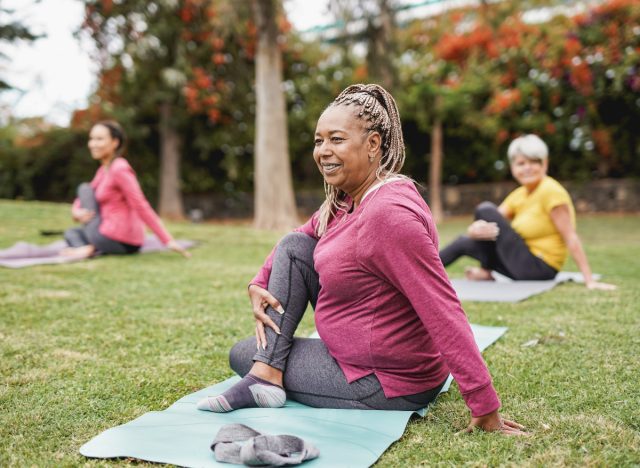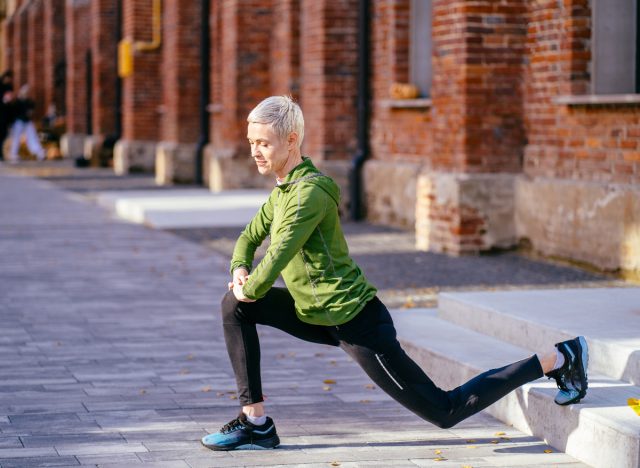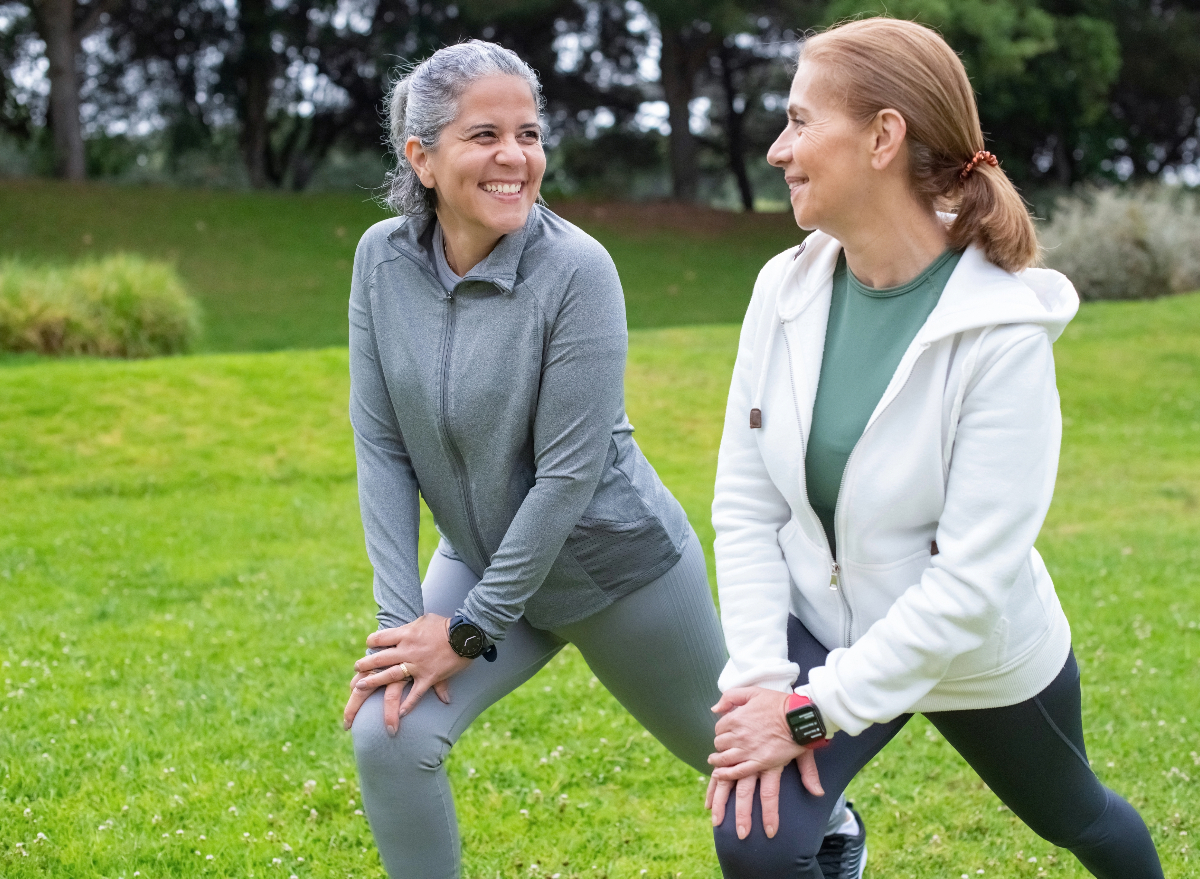Leading a long, healthy, and happy existence is something most if not all of us dream of experiencing. The good news is that you can take control of many of the aspects that increase your chances of living longer and better. Making necessary tweaks to your lifestyle is the name of the game here. Take exercise, for instance. We all know there are plenty of benefits associated with working out on a regular basis, but today, we’re going to break down easy workout habits to live longer that are seamless additions to your routine. Because we all love a simple game plan that yields solid results, right?
When in doubt, let science do the talking. We scoured the internet to find the most beneficial fitness research for you to soak up and implement into your daily lifestyle. Keep reading to learn all about the best easy fitness habits to live longer, according to science. And when you’re finished, be sure to check out the 5 Best Mediterranean Lifestyle Tips for a Longer, Healthier Life.


If you’re not already doing mobility training, it’s time to fix that! Being mobile and strong well into your older years is one of the most crucial aspects of maintaining your independence and daily happiness. (And independence promotes longevity—science says so!)
According to research published in the Cochrane Database of Systematic Reviews, frailty is a common ailment among older adults. In fact, an estimated 21% of “the community-dwelling population” who exceed the age of 65 suffer from frailness. The data reveals that mobility training—e.g. yoga and stretching—is an excellent method for older adults to boost their mobility and overall daily functioning.


Researchers from the National Institute on Aging have put in over 40 years of studying the effects of implementing strength training into one’s routine. They discovered that this form of exercise is incredibly beneficial; it can help boost mobility, preserve lean muscle mass, and even extend your life. In addition, sculpting strong muscles and bones can help prevent osteoporosis, a condition that affects many in the older adult population.
Take this research from the British Journal of Sports Medicine, for example. The data linked muscle-strengthening exercises to a 10% to 17% decreased chance of death by any cause, diabetes, cardiovascular disease, lung cancer, and total cancer.
READ RELATED: Heath Streak, Former Zimbabwe Captain, Dies After Long Battle With Cancer


A 2023 systematic review published in the British Journal of Sports Medicine reveals you don’t have to walk for an hour—or even a half-hour!—a day in order to add more healthy years to your life. (Although if you have the time to walk more, that certainly won’t hurt.) The research shows that getting in your steps for 11 minutes a day (totaling 75 minutes a week) can substantially decrease your risk of early death, along with cardiovascular disease, and certain types of cancer. Needless to say, carving out time for a little bit of movement every day is certainly better than nothing!
RELATED: 5 Essential Tips To Live Longer From a Neurosurgeon


Okay, we know we just finished saying you don’t need to walk that much in order to boost your chances of longevity, but hear us out with this one. Going above and beyond in everything you do—from work to relationships to fitness—usually pays off.
According to the 2018 Physical Activity Guidelines for Americans, individuals should strive to get a minimum of 150 minutes to 300 minutes of moderately intense aerobic exercise, or 75 minutes to 150 minutes of vigorously intense aerobic activity per week. But if you really want to lead a longer life, research published in Circulation found that individuals who exercised two to four times above and beyond the recommended amount for moderate physical activity reaped a plethora of benefits. Participants experienced 26% to 31% decreased risk of dying from any cause, and 28% to 38% experienced decreased cardiovascular mortality.


When working out, it’s important to have some top goals at the top of your mind—one of them being maintaining a healthy weight (or slimming down and getting into shape if you are overweight). There’s plenty of research out there linking excess visceral fat and obesity to premature mortality. It’s always a smart idea to consult with a certified fitness professional to outline your goals, come up with a personalized workout routine that embodies them, and go from there. Your trainer will likely recommend a combination of cardio and strength work. Doing this one foolproof task can help you live longer—and much healthier. So what are you waiting for?
Alexa Mellardo









